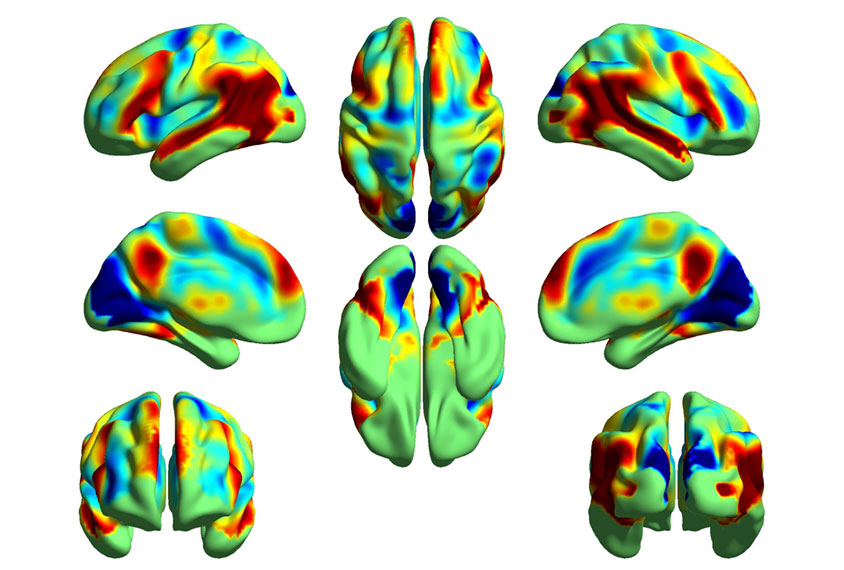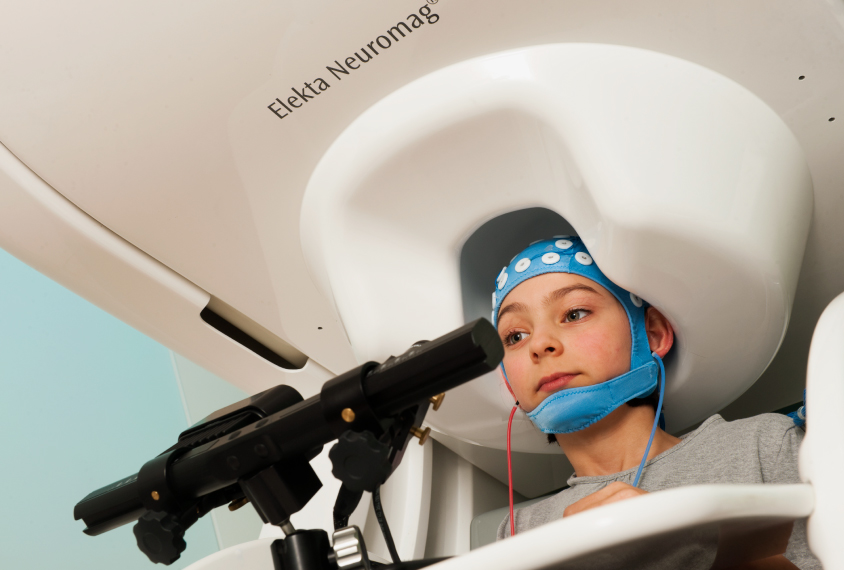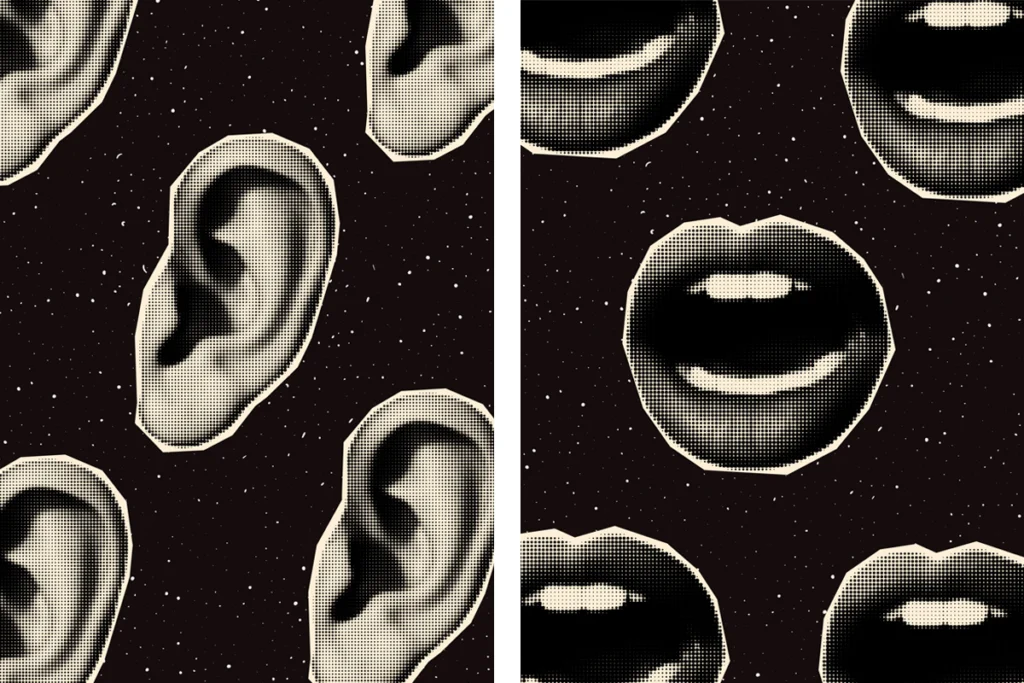Superior temporal sulcus
Recent articles
‘Social brain’ activity may not differ in some autistic people
People with autism may have patterns of brain activity that are similar to those in typical people when interpreting social interactions.

‘Social brain’ activity may not differ in some autistic people
People with autism may have patterns of brain activity that are similar to those in typical people when interpreting social interactions.
Autistic children may have to mute own perspective to grasp others’
To understand another person's point of view, children with autism may need to actively suppress their own.

Autistic children may have to mute own perspective to grasp others’
To understand another person's point of view, children with autism may need to actively suppress their own.
In autism, food quirks show up in social brain areas
Young adults with autism who have intense sensitivity to taste show increased activation in social areas of the brain when they taste something sweet.

In autism, food quirks show up in social brain areas
Young adults with autism who have intense sensitivity to taste show increased activation in social areas of the brain when they taste something sweet.
How dining out with my daughter inspired my autism studies
Restaurants can be stressful for my daughter Frances, who has autism, but her difficulties led me to try to better understand and treat her type of situational anxiety.

How dining out with my daughter inspired my autism studies
Restaurants can be stressful for my daughter Frances, who has autism, but her difficulties led me to try to better understand and treat her type of situational anxiety.
Researchers map spot in brain for tracking others’ eyes
Following another person’s gaze is a task distinct from recognizing and reading faces.

Researchers map spot in brain for tracking others’ eyes
Following another person’s gaze is a task distinct from recognizing and reading faces.
Brain’s face detector lights up questions about autism’s origins
Lower activity in a key face processing region of the brain hints that people with autism could benefit from training to become ‘face experts.’
Brain’s face detector lights up questions about autism’s origins
Lower activity in a key face processing region of the brain hints that people with autism could benefit from training to become ‘face experts.’
Landscape of brain ridges may vary with gender in autism
A region of the brain involved in interpreting social cues is unusually smooth in boys and men with autism, but normal in girls and women with the disorder.

Landscape of brain ridges may vary with gender in autism
A region of the brain involved in interpreting social cues is unusually smooth in boys and men with autism, but normal in girls and women with the disorder.
In autism, RNA snippets vary little by brain region, age
The expression patterns of microRNAs vary less by brain region and age in people with autism than in controls. Researchers presented the unpublished findings Tuesday at the 2014 Society for Neuroscience annual meeting in Washington, D.C.

In autism, RNA snippets vary little by brain region, age
The expression patterns of microRNAs vary less by brain region and age in people with autism than in controls. Researchers presented the unpublished findings Tuesday at the 2014 Society for Neuroscience annual meeting in Washington, D.C.
Therapy for autism may alter brain activity, behavior
After four months of a behavioral therapy known as pivotal response training, children with autism show improved behavior and enhanced activity in brain regions that process social information. Researchers presented these preliminary results from a trial yesterday at the 2014 Society for Neuroscience annual meeting in Washington, D.C.

Therapy for autism may alter brain activity, behavior
After four months of a behavioral therapy known as pivotal response training, children with autism show improved behavior and enhanced activity in brain regions that process social information. Researchers presented these preliminary results from a trial yesterday at the 2014 Society for Neuroscience annual meeting in Washington, D.C.
People with autism have trouble processing sight, sound
People with autism tend to be less efficient than controls at integrating what they hear with what they see, according to unpublished results presented today at the 2014 Society for Neuroscience annual meeting in Washington, D.C.

People with autism have trouble processing sight, sound
People with autism tend to be less efficient than controls at integrating what they hear with what they see, according to unpublished results presented today at the 2014 Society for Neuroscience annual meeting in Washington, D.C.
Explore more from The Transmitter
Post-infection immune conflict alters fetal development in some male mice
The immune-conflict between dam and fetus could help explain sex differences in neurodevelopmental conditions.

Post-infection immune conflict alters fetal development in some male mice
The immune-conflict between dam and fetus could help explain sex differences in neurodevelopmental conditions.
Three ecological psychologists on the right and wrong ways to use the field’s principles in neuroscience
Matthieu de Wit, Luis H. Favela and Vicente Raja weigh in on the recent trend of neuroscientists importing concepts from ecological psychology, the study of how an organism’s interactions with its environment explain perception and action.
Three ecological psychologists on the right and wrong ways to use the field’s principles in neuroscience
Matthieu de Wit, Luis H. Favela and Vicente Raja weigh in on the recent trend of neuroscientists importing concepts from ecological psychology, the study of how an organism’s interactions with its environment explain perception and action.
Is there a neuroscientist in the House?
Sam Wang, a neuroscientist running for the U.S. House of Representatives, has been considering American democracy for decades.

Is there a neuroscientist in the House?
Sam Wang, a neuroscientist running for the U.S. House of Representatives, has been considering American democracy for decades.